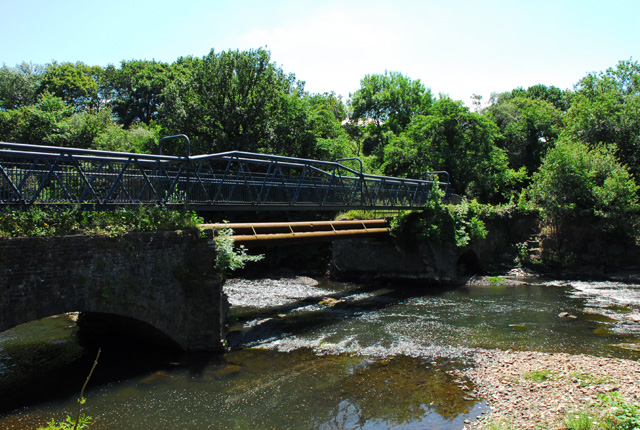- Download:
- MP3 Audio60 MB
 We kick off a miniseries of texts from medieval travelers by continuing with Gerald of Wales as he sets out to tour Wales with Archbishop Baldwin, collecting stories from the region and getting involved in a few escapades of his own.
We kick off a miniseries of texts from medieval travelers by continuing with Gerald of Wales as he sets out to tour Wales with Archbishop Baldwin, collecting stories from the region and getting involved in a few escapades of his own.
Today’s Texts:
- Gerald of Wales. The Itinerary and Description of Wales. Translated by Richard Colt Hoare, introduction by W. Llewelyn Williams, Everyman’s Library, J.M. Dent and Co., 1908. Archive.org, https://archive.org/details/itinerarythroug00girauoft.
-
Gerald of Wales. The Journey Through Wales and The Description of Ireland. Translated by Lewis Thorpe, Penguin, 2004.
Selected References:
-
Bartlett, Robert. Gerald of Wales: 1146-1223. Clarendon Press, 1982.
-
Coulter, Cornelia C., and F.P. Magoun, Jr. “Giraldus Cambrensis on Indo-Germanic Philology.” Speculum, vol. 1, no. 1, Jan. 1926, pp. 104-109. JSTOR, doi:10.2307/2847347.
-
Sargent, Amelia Lynn Borrego. Visions and Revisions: Gerald of Wales, Authorship, and the Construction of Political, Religious, and Legal Geographies in Twelfth and Thirteenth Century Britain. Disseration, University of California, Berkeley, 2011.
-
Sims-Williams, Patrick. Irish Influence on Medieval Welsh Literature. Oxford UP, 2011.
Image: Footbridge over the River Neath by Cedwyn Davies (used under CC BY-SA 2.0 license).



Aristotle not Solomon said “The root of learning is bitter, although the fruit is sweet” (16:30)
I looked to see what else I could find about where Gerald got this quote. Thorpe has a footnote on it, but makes a different attribution:
“This is a favorite reference of Gerald’s. Here he wrongly ascribes it to Solomon, i.e., Proverbs. In The Topography of Ireland, III.48, he gives the correct reference to Saint Jerome, Epistola ad Rusticum monachum (Saint Jerome, Letters, ed. Jerome Labourt, Paris, 1961, Vol. VII, Letter CXXV, p. 125): ‘De amaro semine literarum dulces fructus capio.’ It seems to be a rather dim memory” (Thorpe, p. 133, n. 201).
I do see the quote widely attributed to Aristotle online, but not with a reference to a specific source text. It wouldn’t be absurd for Jerome to be also making a reference, but this Quora thread offers some support for the Aristotle attribution being erroneous (though none of the posters there appear to be aware of the Jerome quote): https://www.quora.com/Where-does-Aristotle-say-The-roots-of-education-are-bitter-but-the-fruits-are-sweet
Hi,
Love the program, Ive been listening for a few years. I actually live in Neath and often visit the ruins of the aforementioned Abbey. It would have been spectacular in its day. Perhapd there is something to talk about further about that? Im led to believe it was the third richest abbey in the UK at one point which is no small feat. And yes the river seems just as unappealing to cross now as it must have been then! Might I also refer you to the village of Kenfig, not far from here. They made a Time Team episode on it